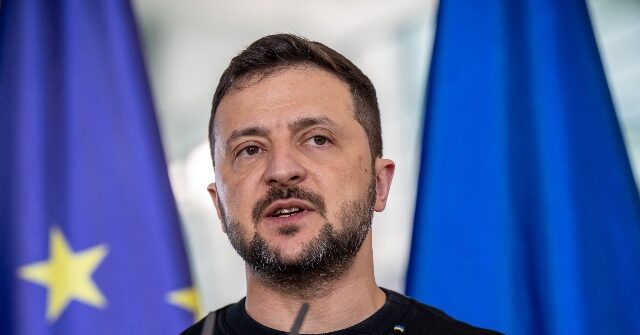Ukrainian President Volodymyr Zelensky expressed optimism about the potential end of the conflict with Russia during a recent visit to Berlin as he sought continued military support from European allies. His visit was part of a broader diplomatic tour across Europe, which included stops in London, Paris, and Rome. As Ukraine approaches its third winter of war, Zelensky underlined the urgent need for sustained assistance from European nations. Meeting with Chancellor Olaf Scholz, he remarked on the importance of not letting military support diminish in the coming year and presented a strategy for achieving victory in the ongoing conflict. Zelensky emphasized Ukraine’s desire for a just resolution, noting the devastating toll the war is inflicting on the country and its people.
During their meeting, Scholz committed to providing additional defense equipment to Ukraine and confirmed a German aid package worth four billion euros for 2025. He reiterated that support for Ukraine from Germany and its European partners would continue undiminished, acknowledging the necessity for a peace conference that incorporates Russia. However, Scholz stressed that any peace deal must adhere to international law and would not be one imposed by Russia. As part of his European journey, Zelensky also met with German President Frank-Walter Steinmeier, showcasing his efforts to rally military and financial backing amid concerns regarding the future of international support should Trump regain the presidency in the U.S.
Zelensky’s tour included a significant audience with Pope Francis at the Vatican, where the Ukrainian leader discussed humanitarian concerns, particularly the fate of Ukrainians captured or deported to Russia. The Vatican acknowledged the dialogue focused on the state of the war and potential pathways to achieving a lasting peace. Despite previous tensions, including discontent from Kyiv over the Pope’s comments urging for peace negotiations, Zelensky hopes for the Vatican’s assistance in addressing the grave humanitarian issues stemming from the war. Following this, he traveled to Paris to meet with President Emmanuel Macron, where he denied any media speculation about negotiating ceasefire terms with Russia, emphasizing the importance of combating misinformation.
Reports indicate that Russian military forces continue to gain ground in the eastern part of Ukraine, inflicting damage to critical infrastructure, as the country braces for its most challenging winter yet since the conflict began. Recent territorial gains by Russia have included the capture of frontline villages, while airstrikes resulted in civilian casualties in the southern region of Odesa. Simultaneously, Zelensky has been advocating for access to long-range weaponry from allies, specifically seeking authorization to use advanced munitions such as British Storm Shadow missiles to target Russian military sites deep within their territory. However, Washington and London are hesitant, fearing that such actions may escalate the conflict directly involving NATO forces.
The ongoing debate regarding the supply of military equipment to Ukraine is particularly contentious within Germany. Chancellor Scholz’s reluctance to provide the long-range Taurus missile system has drawn criticism, even among coalition partners such as the Green Party and the Free Democrats (FDP). Voices within the German opposition have stressed the need for a substantial increase in military support, including air defense and long-range capabilities, which they argue are critical to prevent further Russian offensives. The urgency of these calls underscores the broader recognition that failure to support Ukraine could have severe ramifications for European security as a whole, reinforcing the need for decisive action in the face of ongoing hostilities.
As the situation evolves, Zelensky’s diplomatic efforts reflect his commitment to securing support for Ukraine amid a precarious winter and an uncertain political landscape. Each stop on his tour underscores the necessity of strong international alliances and continued assistance, not just to navigate the immediate crisis but to work toward a resolution that restores Ukraine’s sovereignty. His assertions that any peace settlement should not involve territorial compromises highlight the complexities and stakes involved in achieving a resolution. The upcoming months will be critical in shaping both the military and political dynamics as Ukraine seeks to fortify its defenses and pursue a path to peace that aligns with its national interests.

